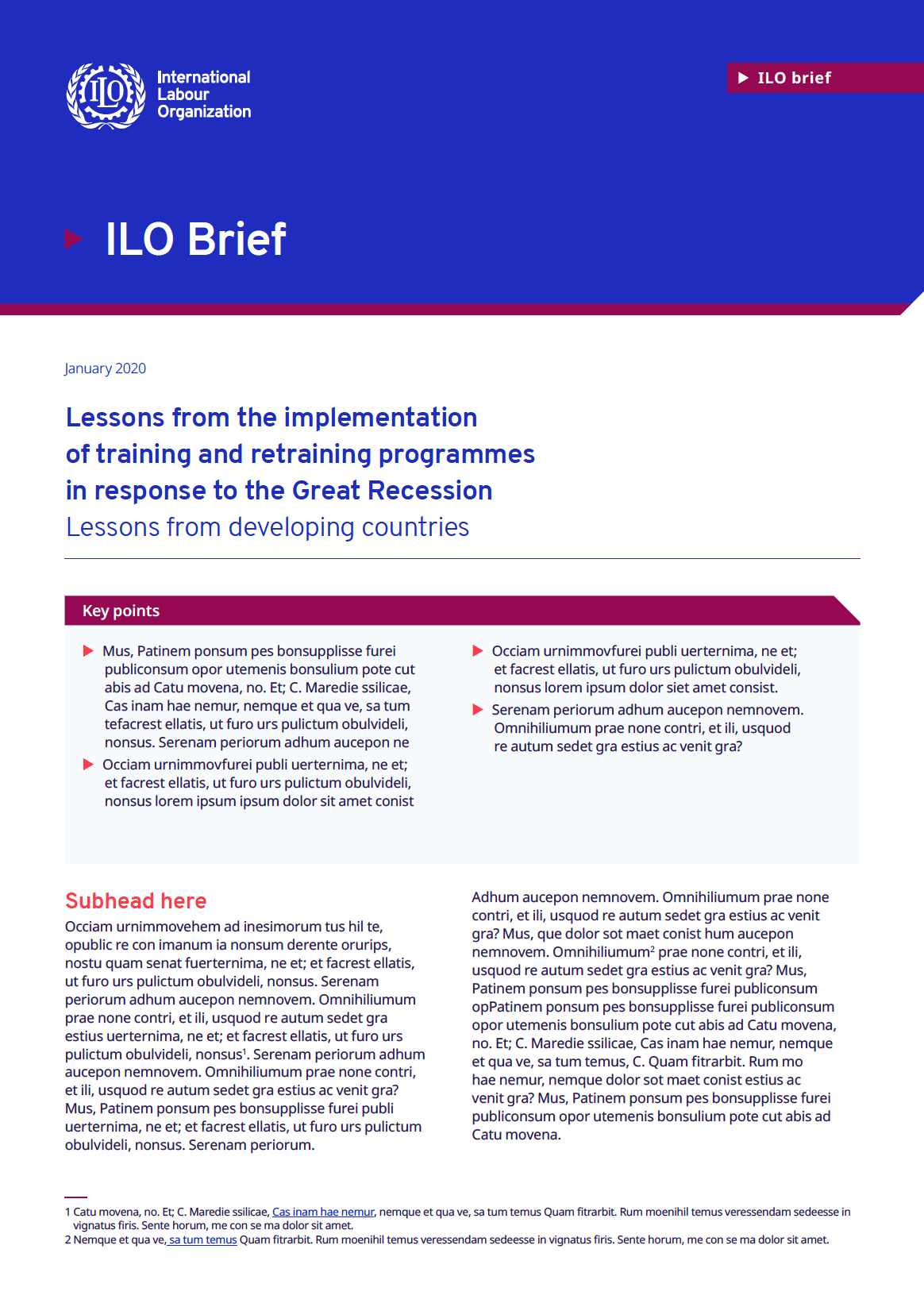A market systems approach to skills development
Enterprises can drive business success and support inclusive economic growth by making investments into educating, training and reskilling of workers. Workers also face an imperative to proactively upgrade their skills or acquire new ones through training, education, and lifelong learning to remain employable, especially in the face of rapid transformation brought about by advances in automation and digitalisation.
A market systems approach to skills development has the potential to lead to more sustainable employment outcomes at scale, by taking a holistic approach to addressing both supply- and demand-side factors, as well as tackling the cost of skills development programmes and strengthening the link between market needs and the important role of regulation and standards.
Drawing on three case studies, this paper explores how a market systems development (MSD) approach to skills development can lead to employment outcomes and foster sustainable impact through systemic change that is owned, maintained, and further evolved by local stakeholders.




